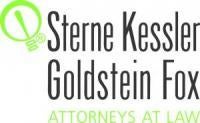In borrowing a page from the '80s band "Men Without Hats," on June 12, 2017, the U.S. Supreme Court brought greater certainty for both biosimilar applicants and originator companies. In Sandoz Inc. v. Amgen Inc., the Supreme Court ruled on two key issues relating to the “patent dance” under the Biologics Price Competition and Innovation Act (BPCIA). First, the Court held that where a biosimilar applicant declines to provide its application and manufacturing information, the patent owner’s exclusive remedy under federal law is to bring a declaratory judgment action for patent infringement. The Court left open for now whether a patent owner may have additional remedies under state law. Second, the Court held that a biosimilar applicant may provide its mandatory 180-day notice of commercial marketing at any time and need not wait until FDA has approved its application.
As Sandoz did in the present case, the decision means that a biosimilar applicant can elect not to provide the reference product sponsor with access to its application and manufacturing information. And, as a consequence, this also provides the option to not participate in the resulting exchange of patent information provided for under the BPCIA—commonly referred to as the “patent dance.” The sole remedy available to the reference product sponsor under federal law is to file a declaratory judgment action for patent infringement.
Whether future biosimilar applicants will elect to participate in the patent dance will likely depend on whether they see a strategic benefit to the early exchange of product and patent information in a given case. A recent report from The IMS Institute for Healthcare Informatics estimates the global pharmaceutical biologics market at over $200B, with biosimilars representing 2-4% of that market.[1] With the Supreme Court's ruling it is highly likely that biosimilar applicants will not provide highly confidential information to their closest competitors.
The most consequential aspect of today’s decision is the Court’s conclusion that a biosimilar applicant may give its 180-day notice of intent to commercially market before it receives FDA approval. This means that, absent a court injunction, a biosimilar applicant will be free to market its product immediately upon FDA approval so long as it provided its notice at least 180 days prior to FDA approval.
While the Court gave some clarity on the issues of effective notice of commercial marketing and participation with the patent dance, it is important to take note that lawmakers are currently undertaking efforts to overhaul the Affordable Care Act. The decision begs the question of whether lawmakers will attempt to amend portions of the BPCIA to override one or both of the Court’s holdings.




 />i
/>i


